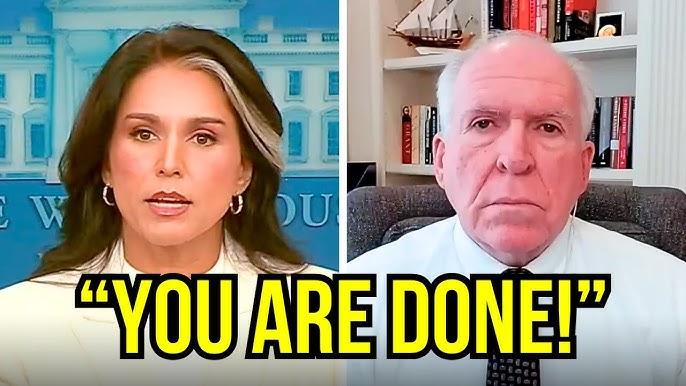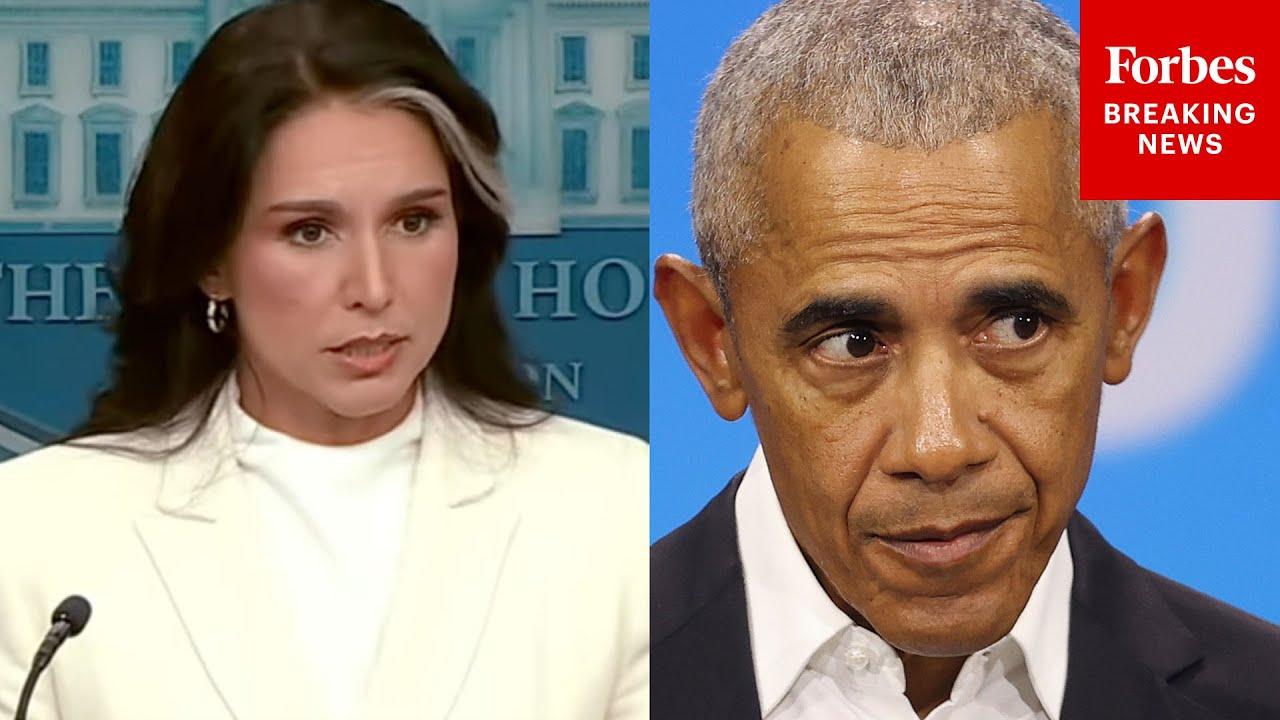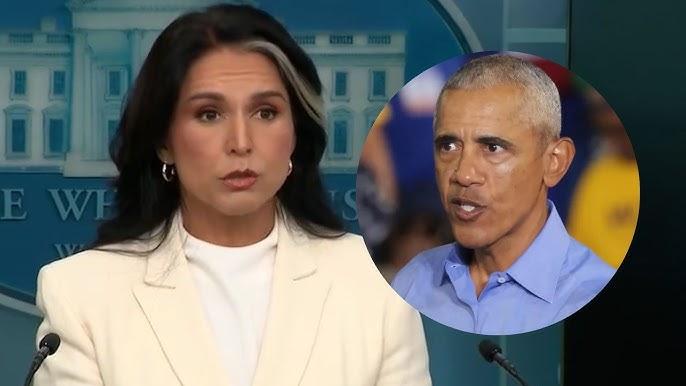The political landscape has been rocked by explosive allegations from Director of National Intelligence Tulsi Gabbard, who recently declassified documents claiming that former CIA Director John Brennan, along with other Obama-era officials, orchestrated a “treasonous conspiracy” to undermine Donald Trump’s 2016 presidential victory. Gabbard’s revelations, which she asserts expose a manufactured narrative of Russian interference in the 2016 election, have reignited fierce debate and prompted President Trump to demand justice, amplifying calls for accountability that resonate with his base. The controversy, centered on the now-infamous 2017 Intelligence Community Assessment (ICA), has drawn sharp criticism from Democrats, who dismiss the claims as politically motivated distortions of well-established facts.

Gabbard’s office released a trove of documents on July 18, 2025, alleging that Obama administration officials, including Brennan, former Director of National Intelligence James Clapper, and former FBI Director James Comey, manipulated intelligence to suggest Russia sought to bolster Trump’s campaign. According to Gabbard, these officials acted under President Barack Obama’s direction to produce a flawed assessment that contradicted earlier intelligence findings. She pointed to a December 2016 meeting involving Obama’s national security team, including Brennan, Clapper, Susan Rice, and others, where a new assessment was ordered to focus on Russia’s alleged election meddling. Gabbard claims this shift was based on questionable sources, notably the discredited Steele dossier, funded by Hillary Clinton’s campaign, which alleged ties between Trump and Russia.

The declassified documents, including emails and memos, suggest that prior to the 2016 election, the intelligence community found no evidence of Russia using cyberattacks to alter vote counts. However, post-election, the narrative pivoted to claim Russia aimed to help Trump win, a conclusion Gabbard argues was pushed by Brennan despite objections from CIA analysts who deemed the dossier unreliable. She has referred these documents to the Justice Department, urging criminal investigations into Brennan, Clapper, and others for what she calls a “years-long coup” to subvert Trump’s presidency. President Trump has seized on these claims, sharing an AI-generated video on Truth Social depicting Obama’s arrest, fueling speculation about potential prosecutions.

Democrats have fiercely contested Gabbard’s narrative, accusing her of cherry-picking evidence to appease Trump. Senator Mark Warner, a leading Democrat on the Senate Intelligence Committee, emphasized that a 2020 bipartisan Senate report confirmed Russia’s aggressive interference to aid Trump, including through social media campaigns and hacked Democratic emails. “If there had been some Obama conspiracy, we would have found it,” Warner stated, calling Gabbard’s actions an attempt to erode trust in the intelligence community. Former CIA official Susan Miller, who contributed to the 2017 ICA, defended its findings, noting that it focused on Russia’s disinformation efforts, not vote manipulation, and found no evidence of Trump campaign collusion with Russia.
Critics argue that Gabbard’s declassifications misrepresent the 2017 assessment, which multiple investigations—including those by Robert Mueller and John Durham—have upheld as credible. The Steele dossier, while controversial, was included only as an annex to the ICA, with CIA officials insisting it did not influence the core findings. A recent CIA review led by current Director John Ratcliffe criticized the assessment’s rushed process but did not dispute its conclusion that Russia favored Trump. Democrats like Representative Jim Himes have labeled Gabbard’s accusations “baseless,” suggesting they distract from other Trump administration controversies, such as lingering questions about Trump’s ties to Jeffrey Epstein.
The fallout has intensified scrutiny on Gabbard, whose appointment as DNI was already contentious due to her lack of intelligence experience and past Kremlin-friendly remarks. Supporters, including GOP figures like House Speaker Mike Johnson, praise her for “dismantling the deep state,” while critics warn that her actions risk compromising national security by politicizing intelligence. As the Justice Department reviews Gabbard’s referrals, the debate over the 2016 election continues to polarize, with Trump’s allies viewing it as vindication of his “Russia hoax” claims and opponents decrying it as a dangerous rewrite of history. The resolution of this saga could shape public trust in America’s institutions for years to come.





